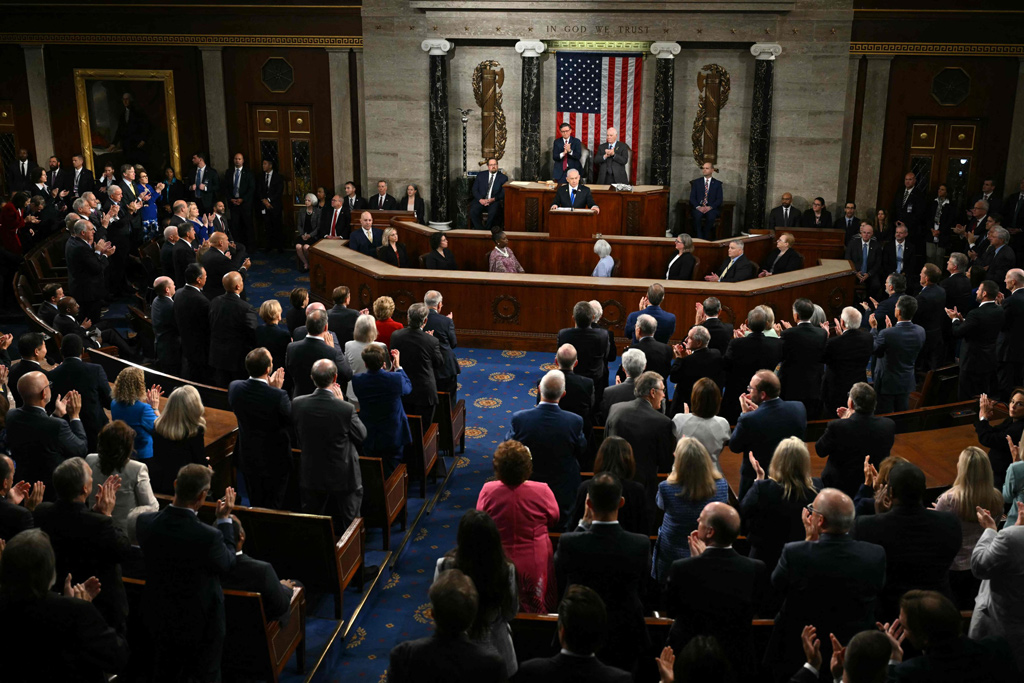The International Criminal Court’s (ICC) historic arrest warrant for Israeli Prime Minister Netanyahu and Defense Minister Gallant has given President Biden yet another "opportunity" to showcase his unwavering support for Israel. In a statement signed by Biden, the White House condemned the ICC's decision as a "disgrace," asserting that no equivalence can be drawn between Israel and Hamas, and reaffirming the U.S.'s steadfast commitment to Israel’s security. These remarks, unsurprising given Biden’s stance since October 7, also highlight his refusal to acknowledge how this approach may have played a critical role in his loss to Trump. Despite the immense political cost and the isolating effect on the international stage, Biden's unconditional support for Israel continues to face serious domestic opposition, suggesting that his alignment with Netanyahu’s policies is proving increasingly costly.
An Ideological and Irrational Israel Policy
Biden's administration has consistently shielded Israel, even vetoing a United Nations Security Council resolution calling for a ceasefire for the fourth time. Biden’s actions reflect his long-standing ideological affinity for Israel, as evidenced by his past remarks, including calling himself a Zionist and stating, "If Israel didn’t exist, we’d have to invent it." Since October 7, Biden has pursued this support with little regard for the potential impact on his political career or the Democratic Party’s electoral prospects.
Biden’s determination to be remembered as the president who defended Israel at all costs underscores the ideological underpinnings of his approach. The growing backlash among young Democrats, who have nicknamed him “Genocide Joe” due to his alignment with Netanyahu’s policies, signals the profound political and moral challenges Biden faces. His failure to advocate for a ceasefire or propose meaningful solutions to end the conflict has tied his legacy to Netanyahu’s controversial policies of ethnic cleansing.
The Spell of Israel Is Breaking
The proposal to halt U.S. military aid to Israel, sponsored by Senator Bernie Sanders, illustrates the shifting dynamics in American politics. The fact that 18 senators supported the measure highlights growing discomfort with the blank check Washington has provided to Israel under the guise of ensuring its security. These lawmakers recognize that unconditional support for Israel undermines America’s credibility when addressing human rights and democracy elsewhere.
The diminishing public support for Israel’s traditional narrative as a besieged democracy fighting terrorism marks a strategic setback for Israel. Its response to Hamas’ October 7 attack not only failed to win global sympathy but also alienated a significant portion of the American public. The widespread criticism of U.S. aid to Israel reflects a pivotal moment, particularly as younger generations increasingly question Washington’s longstanding policy.
The International System at a Crossroads
Washington’s double standard becomes glaringly apparent in its differing responses to ICC rulings. While the U.S. has welcomed similar decisions targeting non-allied leaders, its dismissal of the ICC’s actions against Israeli officials erodes its moral authority. This inconsistency further diminishes America's already fragile credibility on the global stage.
The Biden administration’s selective engagement with international institutions like the ICC and the UN undermines the very system it seeks to uphold. This erosion benefits countries like Russia and China, which exploit these inconsistencies to weaken faith in the international order. Furthermore, America’s ability to use diplomacy to discipline rogue states has been severely compromised, limiting its effectiveness in addressing global challenges like Iraq, Libya, and North Korea.
Biden’s approach to Israel signals a deeper crisis within American foreign policy—a prioritization of ideological allegiance over pragmatic leadership that may have far-reaching consequences for the U.S.'s role on the global stage.









